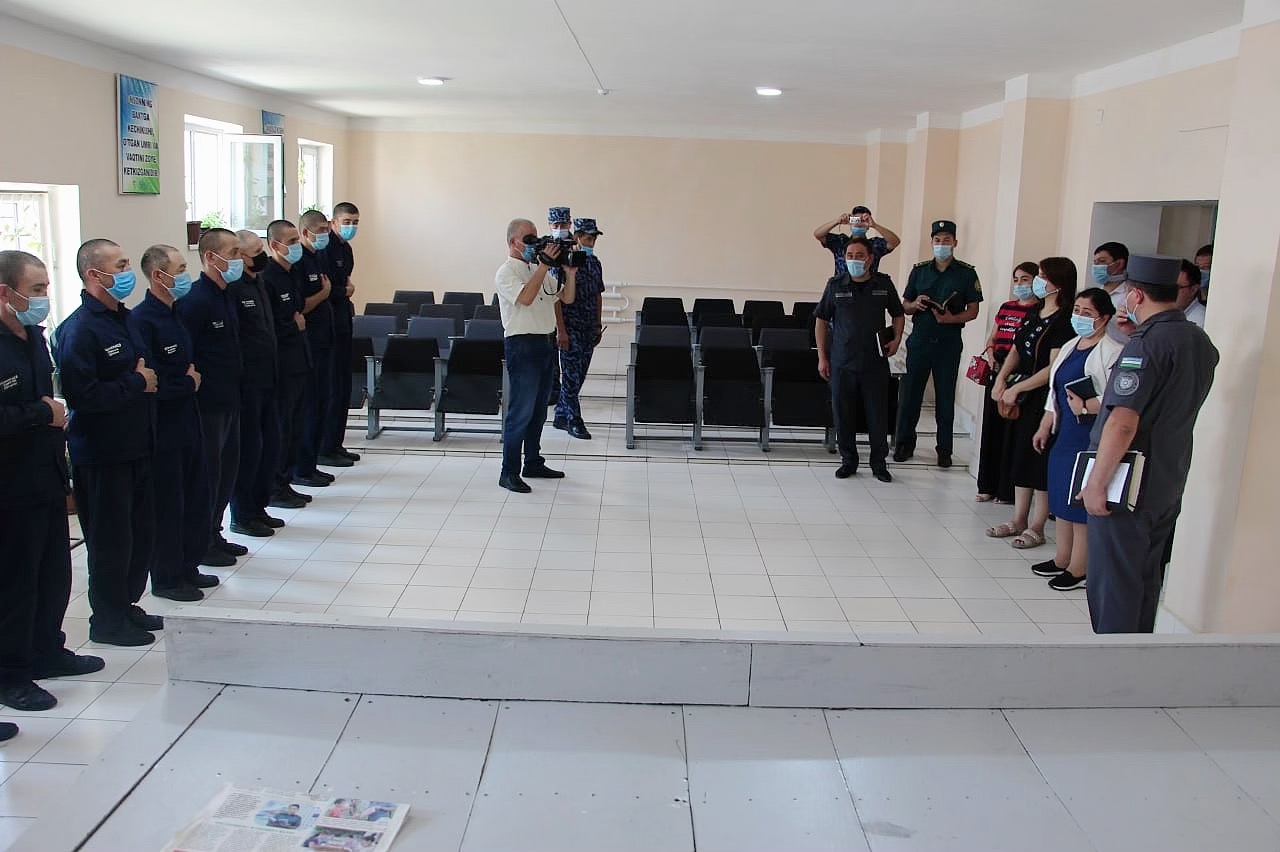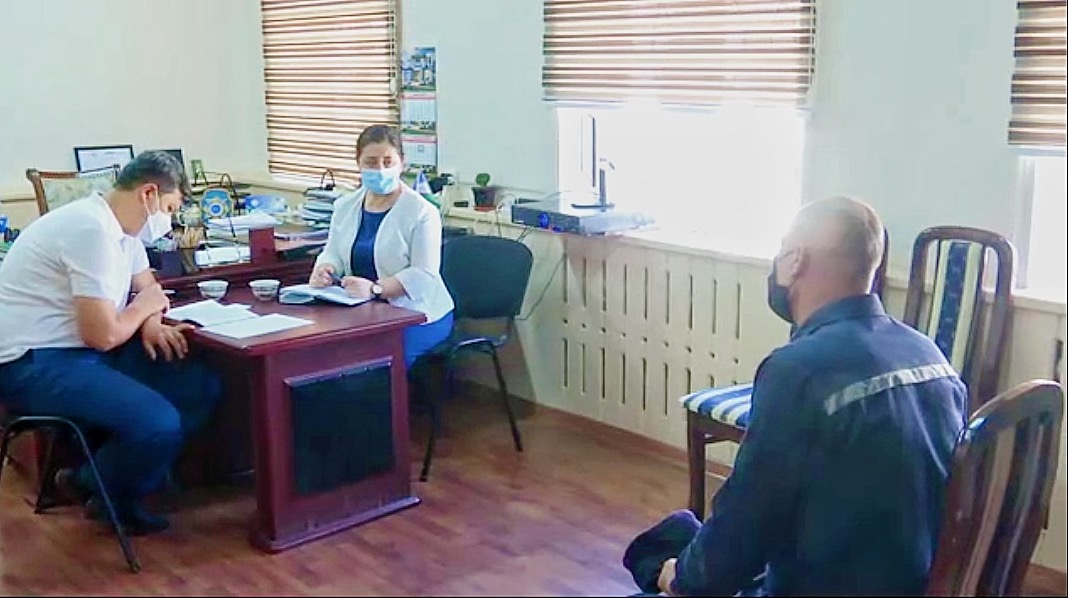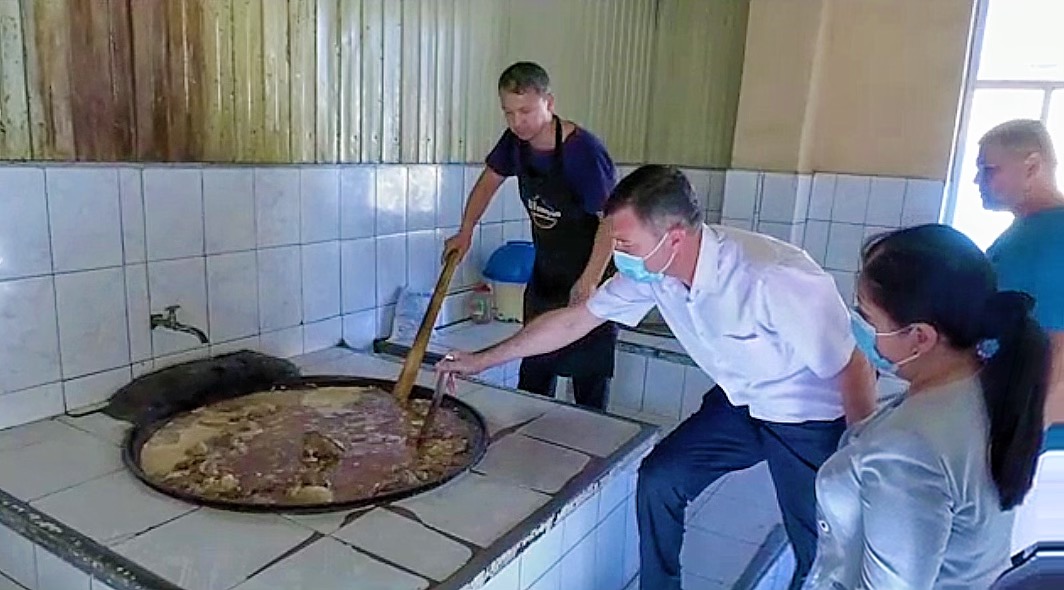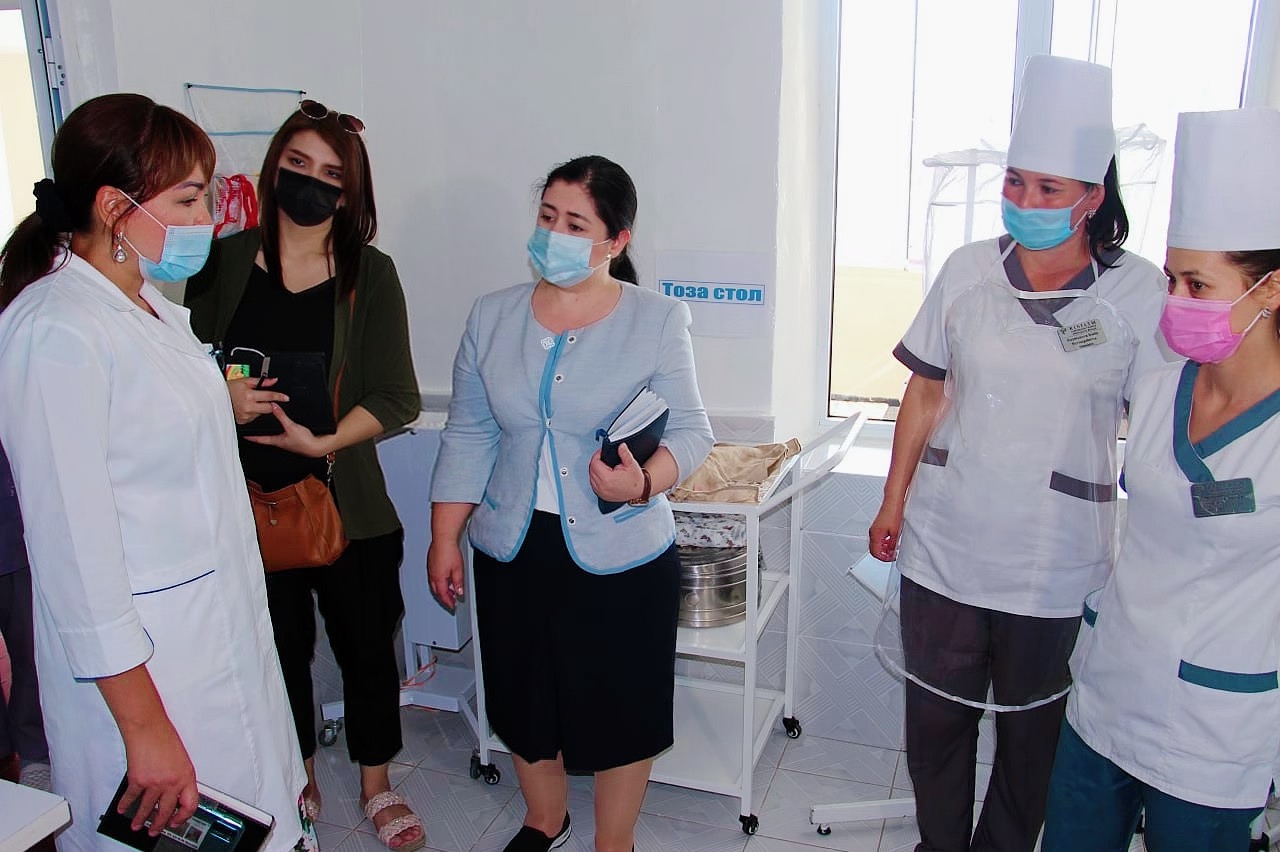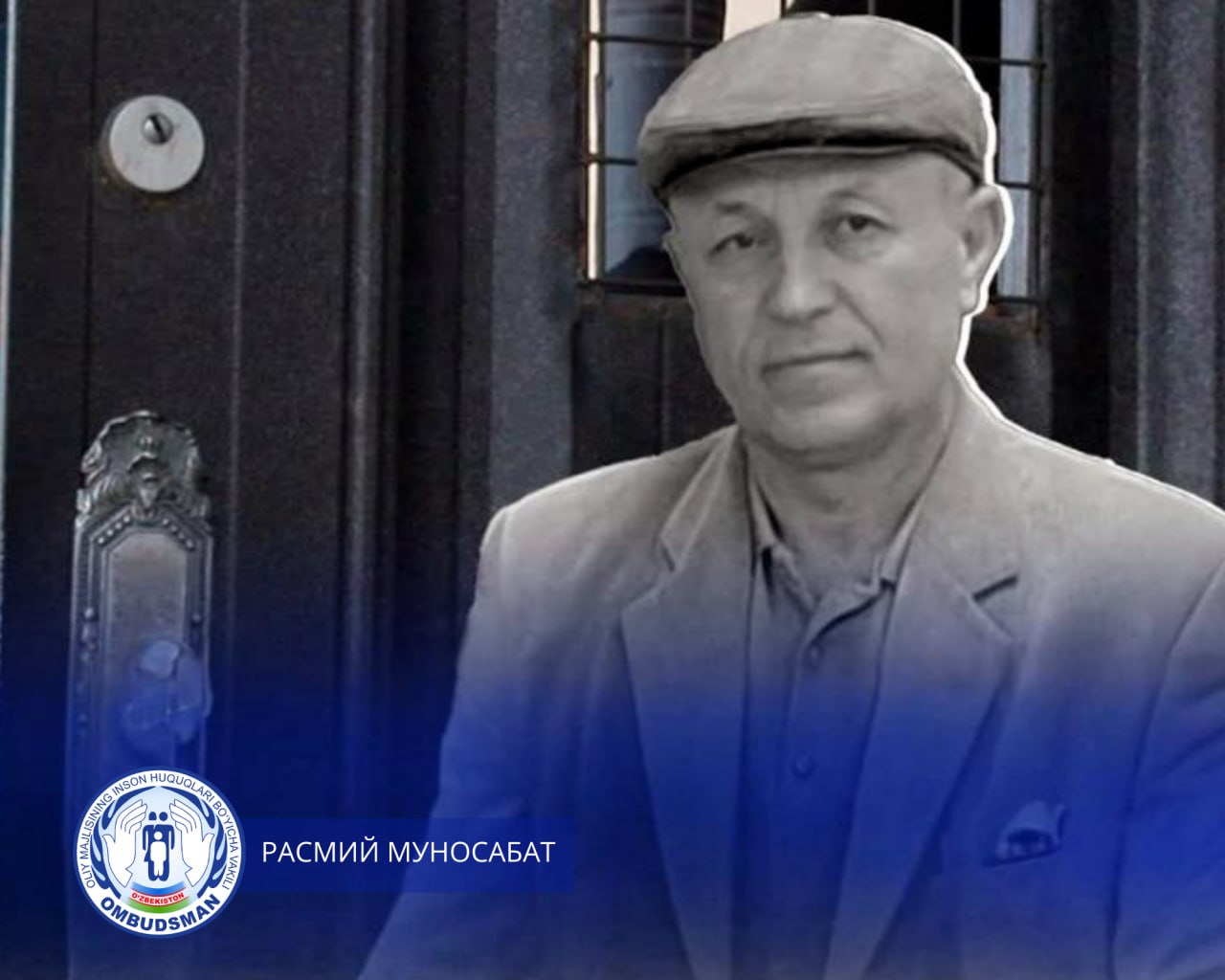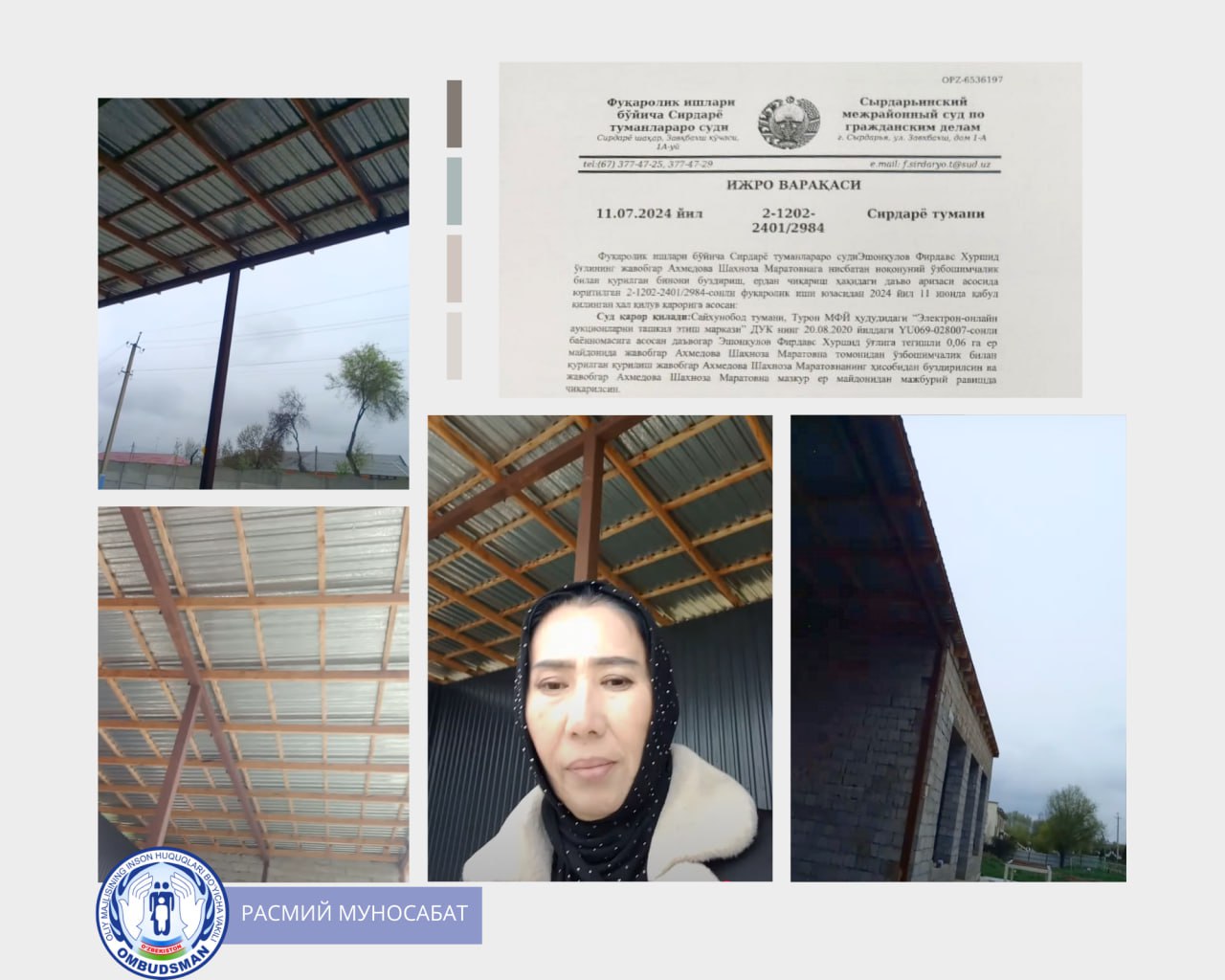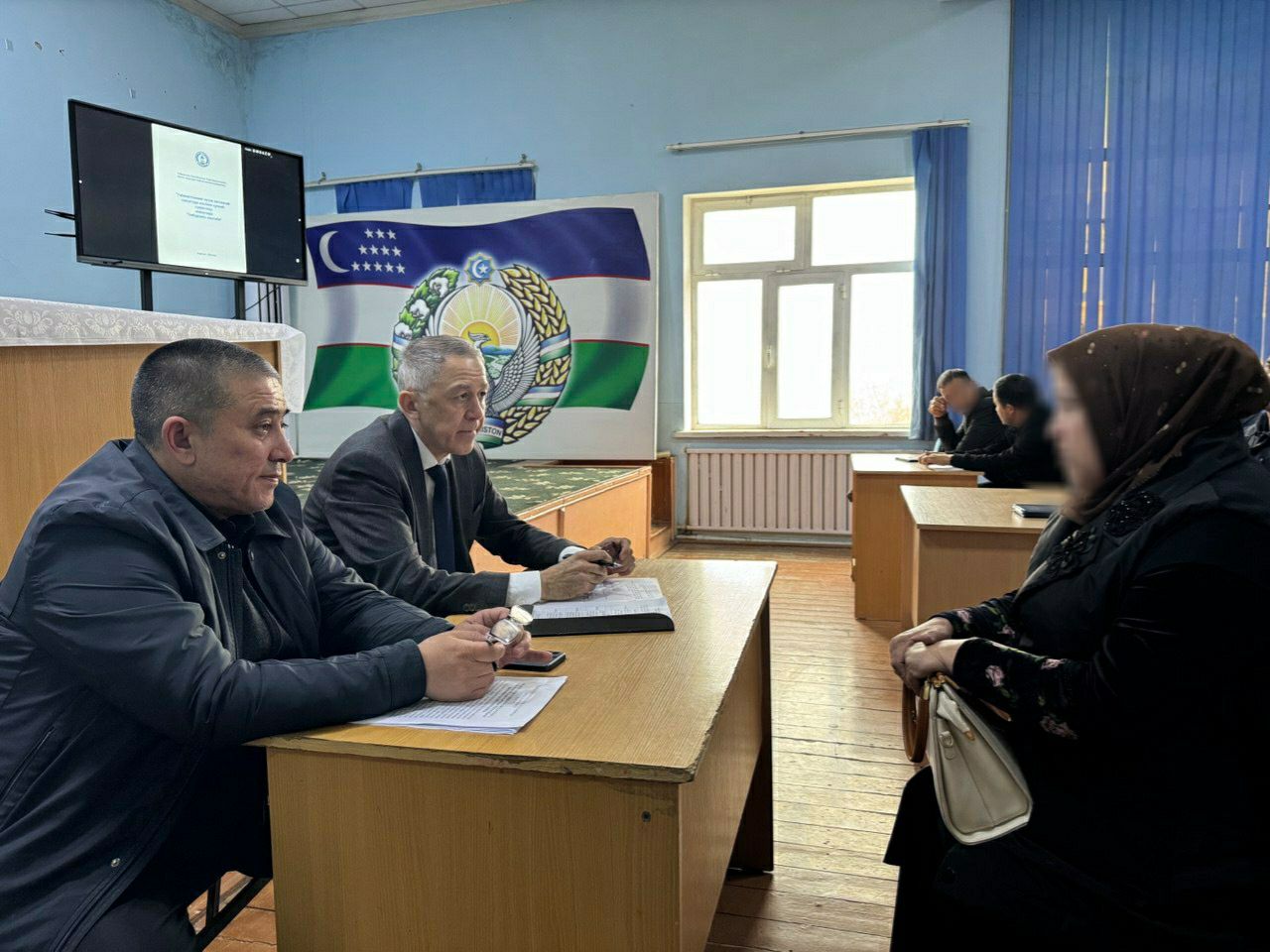In this regard, the Authorized Person for Human Rights and a public group within the framework of the national preventive mechanism conducted monitoring visits to institutions for holding persons with disabilities in the Samarkand region in order to identify and prevent cases of torture.
A public group consisting of the Authorized Person of the Oliy Majlis for Human Rights, employees of the Secretariat of the Authorized Person for Human Rights and the regional representative of the Authorized Person for Human Rights in the Samarkand region visited the Samarkand regional branch of the Republican Specialized Scientific and Practical Medical Center for Addiction Treatment, where it got acquainted with the patients and the conditions created for them. The main focus of the working group was on the level of treatment, rest, nutrition, as well as the level of medical supplies provision for patients.
The branch was established in 1983 and has a capacity of 240 beds. Its 100 seats are reserved for persons subject to compulsory treatment by court order. Persons of compulsory detention receive treatment from 6 months to 1 year.
At the time of the monitoring visit, all places in the institution were occupied, 6 of which were occupied by women.
Members of the community group, led by the Ombudsman, noted that the wards housed 16-18 people, that their beds were very close to each other, and that there was constant noise due to the presence of factories on both sides of the building.
Nargiza Kenjaeva, director of a branch of the Scientific and Practical Medical Center for Narcology, said that the building is non-standard and that there are a number of problems with the accommodation of patients, which were reported to the regional administration.
In accordance with the Investment Program for 2022, it was announced that the construction of a new building for this establishment will begin. The public group reviewed the conditions created here for the prisoners, in particular, checked whether the bathrooms, dormitories, kitchens, as well as the disciplinary block meet the sanitary and hygienic requirements. As part of the monitoring, it was recommended to move the ombudsman's box to a place where all prisoners could see it and where there is no video camera.
During the visit, the group examined the long-term meeting rooms in the colony, the library with legal and fiction literature, and other conditions created for full-fledged work and recreation.
Monitoring carried out in the Special Reception Office of the Samarkand Regional Department of Internal Affairs on the conclusion of administrative detainees showed that the isolation ward was built in 2020 and is equipped with 22 video and audio cameras. Records are tracked directly at the national level. The institution does not have the ability to turn off the video camera, albeit temporarily. The facility, covering an area of 0.70 hectares, houses 56 people, including 5 women.
Of the 896 patients undergoing treatment at the regional neurological dispensary, 342 are women and 16 children. A large area has been allocated and landscaped in the outpatient clinic so that patients can walk in the fresh air. The building has been renovated, equipped with the necessary furniture and medical equipment.
There were no shortcomings in the treatment of patients and their medical supplies provision. However, observers complained that the outsourcing service that was given to the patients for cooking and the quality of the meat products used for cooking did not meet hygiene requirements.
At the same time, the conditions created in several temporary detention centers in the Samarkand region were studied.
A public group operating under the National Preventive Mechanism under the Ombudsman will continue monitoring visits to institutions where people with disabilities are held throughout the country.
Press service of the Authorized Person of the Oliy Majlis
for Human Rights (Ombudsman)













